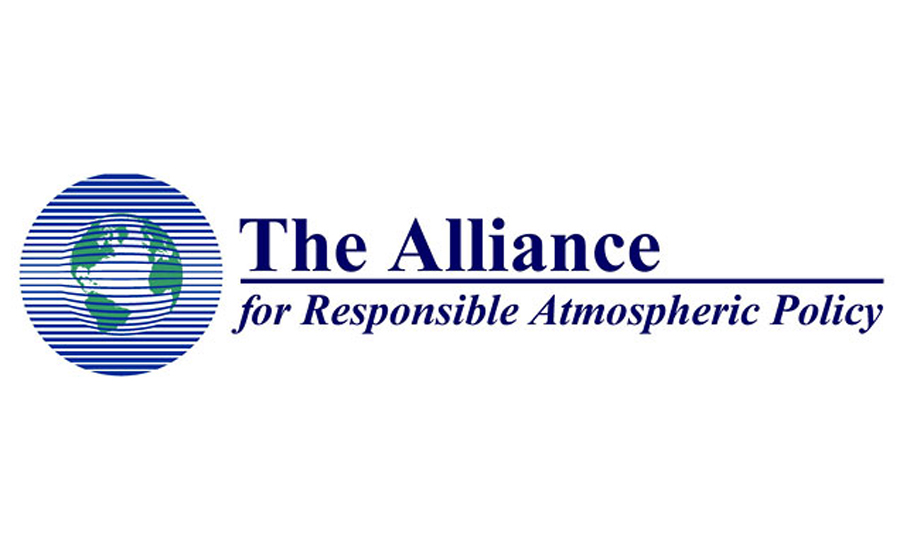The Alliance for Responsible Atmospheric Policy has sent letters to Secretary of State Rex Tillerson and Environmental Protection Agency (EPA) Administrator Scott Pruitt urging that the United States uphold its commitments to the Montreal Protocol on Substances that Deplete the Ozone Layer, and the Kigali Amendment to the Montreal Protocol that was adopted in October 2016.
Under the Kigali Amendment, developed countries — including the U.S. — will begin to reduce their use of hydrofluorocarbons (HFCs) by 2019 while developing countries will begin in either 2024 or 2028. The agreement is designed to reduce HFC use by 85 percent between now and 2047.
The Alliance is an industry coalition organized to address the issue of stratospheric ozone depletion. It is the primary voice of manufacturers, businesses and trade associations who make or use fluorinated gases for the global market. Member companies of the Alliance for Responsible Atmospheric Policy represent more than 95 percent of U.S. HFC production and a significant majority of the manufacturing and other user industries. These businesses have consistently supported a global agreement under the Montreal Protocol to facilitate the orderly transition to new technologies with low climate impact.
The letters, signed by Alliance Executive Director Kevin Fay, included the following excerpts:
“For more than three decades, industry has worked with EPA to incorporate U.S. competitiveness into vital efforts to protect the stratospheric ozone layer. It is critical to continue and fund this work.
“As you are finalizing your FY 2018 budget and program proposals, we ask that you support the continued effective implementation of the global Montreal Protocol, including the technology assistance to developing countries directed through the Protocol’s Multilateral Fund.
“Without leadership from the U.S. government and industry, other countries may fill the void and promote the introduction of alternative technologies that benefit their own exporting industries, and are not as safe and energy efficient.
“The global effort to protect the Earth’s ozone layer by phasing out chlorofluorocarbons (CFCs) and hydrochlorofluorocarbons (HCFCs) is one of the signature environmental policy successes of the last 40 years, first initiated by President Ronald Reagan and his administration. Every administration since has supported the Montreal Protocol and the amendments associated with it. At the foundation of the Protocol’s success is a long history of effective collaboration among industry, government officials and the environmental community. While it is rare for domestic regulatory initiatives to include economic issues as factors in their deliberative process, they are an established component under the Montreal Protocol, at both the global and domestic policy levels.
“Over the last three decades, our collaborative efforts have enabled U.S. industry to lead the global technology transition from CFCs to HCFCs to hydrofluorocarbons (HFCs). Policies to implement the Montreal Protocol and Title VI of the Clean Air Act amendments have led to industry’s invention of new compounds and technologies that prevent further atmospheric buildup of ozone-depleting compounds while allowing innovative manufacturers to provide high-performance products that are safe, effective and affordable for air-conditioning, refrigeration, fire suppression, foam insulation, solvents, and medical devices. U.S. industry has been the leader in these sectors, which over the last several decades have been significant contributors to a positive balance of trade, valuable jobs for the American workforce and a high quality of life for American consumers.
“Especially in the refrigeration, air-conditioning, and foam insulation sectors, there has been a concurrent transition to higher-efficiency equipment and products, leading to positive impacts for the U.S. energy landscape and American consumers. These technologies have been at the cutting edge of modern industrial development, and identified by many emerging economies as critical to their economic growth. In fact, U.S. industry sees immense opportunities in these emerging economies for the export and dissemination of new U.S. technology.
We recognize that the effort underway to right-size the federal budget is fully in line with the campaign commitment of the new administration to make the U.S. government more efficient. As it relates to the EPA budget, the funds utilized for participation in and implementation of the Montreal Protocol have very efficiently met their environmental objective, while helping to sustain U.S. technological leadership in markets worldwide.”
The letter to Tillerson was similar but referenced the State Department rather than the EPA.
A number of Representatives and Senators were copied on the letters, including members of the House and Senate Budget Committees, House and Senate Appropriations Committees, Senate Environment and Public Works Committee, House Environment and Commerce Committee, Senate Foreign Relations Committee, and House Foreign Affairs Committee.
Publication date: 6/5/2017
Want more HVAC industry news and information? Join The NEWS on Facebook, Twitter, and LinkedIn today!


Report Abusive Comment